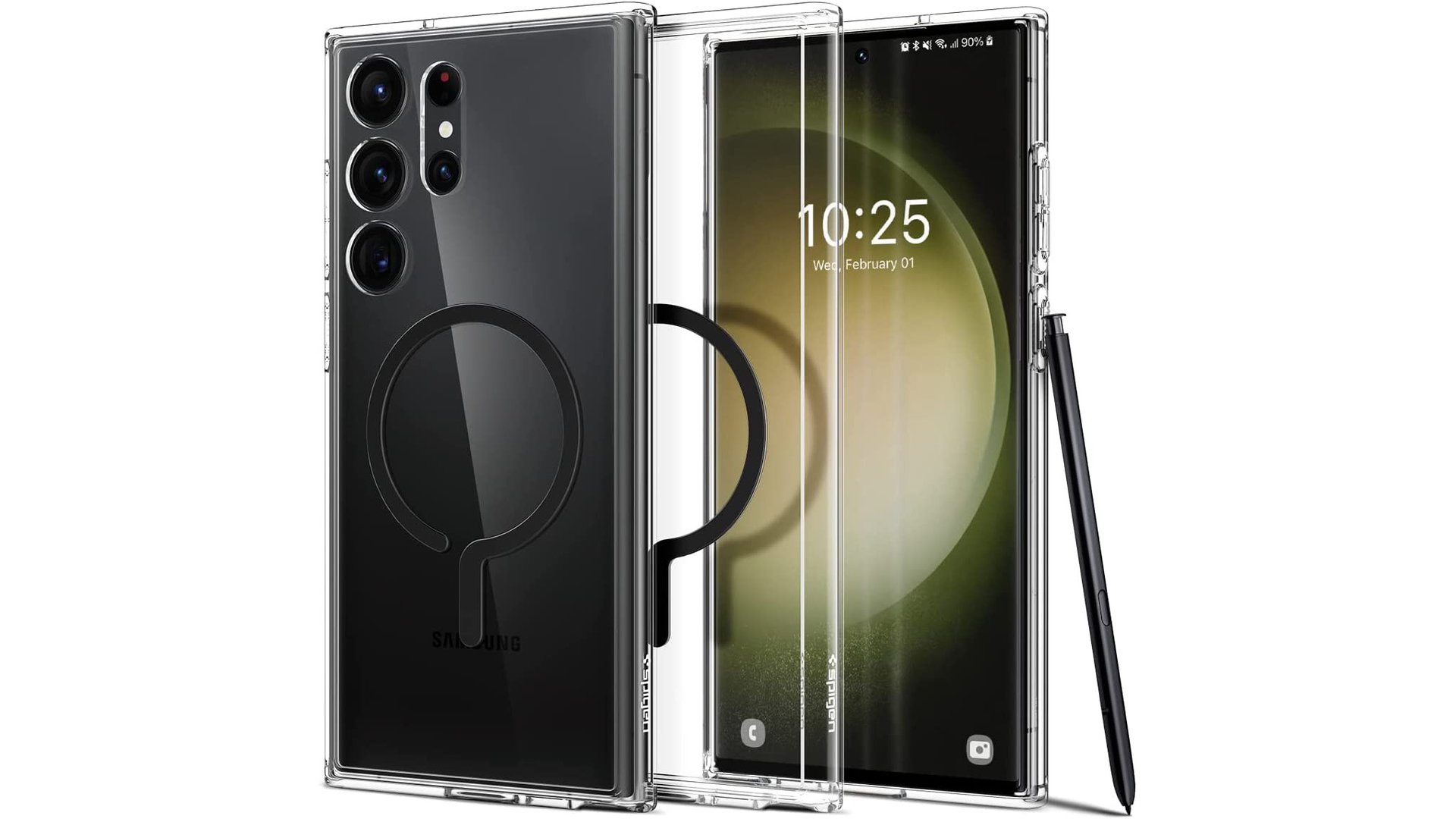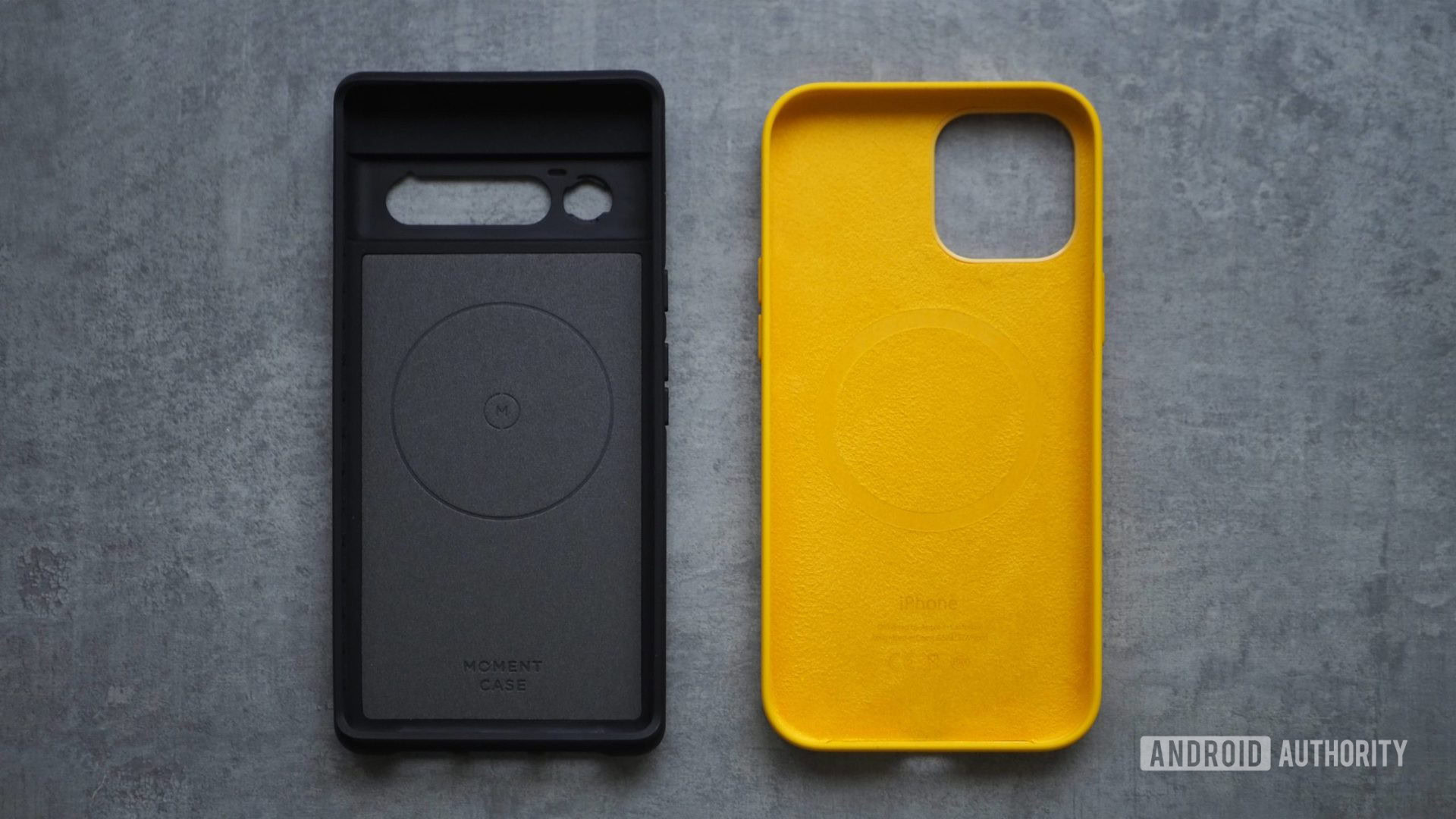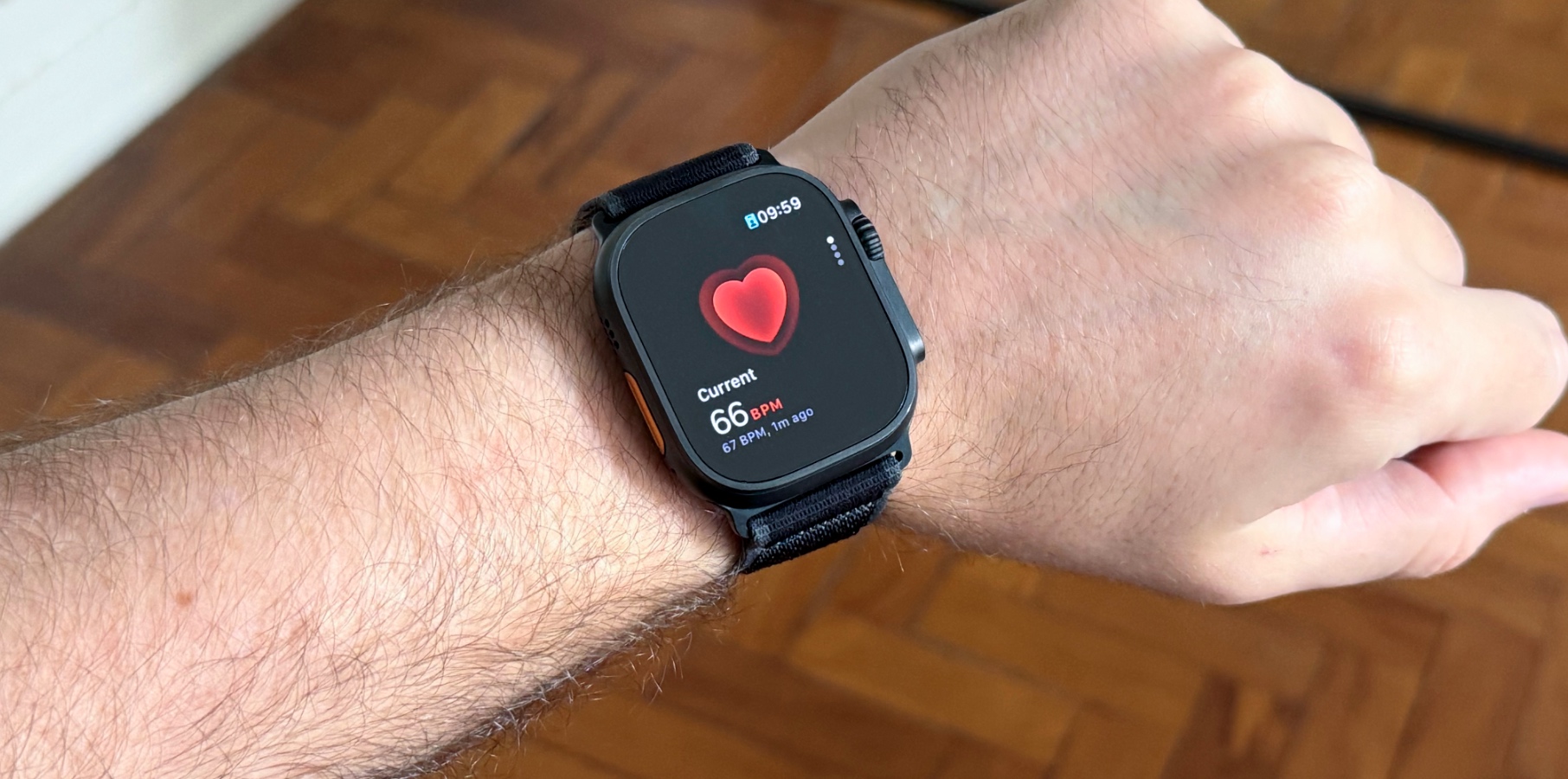Rita El Khoury / Android Authority
The problem with using MagSafe accessories on Android phones is that in order for them to stick to your phone, you need said phone to have the proprietary magnet array in one form or another. MagSafe adapter rings were a fine solution for a while, but they’re a little unsightly and they can catch on fabric when you slide the phone in and our of your pockets. Cases are more seamless; they hide the magnets inside of them. Until now, however, MagSafe cases for Android were either too expensive (Moment, Mous, Pitaka) or too cheap and no-name-branded.
Take a look at Amazon’s list of MagSafe-compatible cases for the one-year-old Samsung Galaxy S22, for example, and you’ll see a list of “brands” with names that look like someone just hit random letters on a keyboard and called it a day. No big hitters like Spigen, Otterbox, Speck, or others.

Rita El Khoury / Android Authority
But things are changing and the new Samsung Galaxy S23 series is the first, most obvious example of that. Spigen, Ringke, Nillkin, and UAG have created MagSafe-compatible cases for the Galaxy S23 series. None of these brands had this for the S22 series. I can’t emphasize how important that is. This is a proper admission of the growing universal nature of MagSafe. (Don’t come for me — even the Wireless Consortium has jumped on the bandwagon with Qi2.) And the fact that well-known but still affordable brands are joining the fray means this is also reaching a level of commoditization.
MagSafe cases for Android phones no longer cost a fortune now that Spigen, Ringke, and Nillkin are jumping on board.
As you can guess, I am a fan of MagSafe, unabashedly. While I don’t care much about the silly wireless charging limitations behind it, I love the magnet system and the way it has standardized phone-accessory attachments. Thanks to it, we moved from an accessory landscape where every brand used a different clamp, plug, sticky pad, suction cup, or magnet size and shape, to one where most brands follow the easy common denominator: MagSafe. Plus, magnets are so cool (please refer to the first Breaking Bad episode), and they don’t differentiate between iPhones and Android phones.
These MagSafe cases are both a stop-gap solution until Qi2 is released and a gateway to it.
Although I expect these MagSafe cases to be a stop-gap solution until Qi2 lands by the end of the year (supposedly), they’re still a step in the right direction for any smartphone accessory lover. Being able to buy one decent and affordable case that opens up a world of possibilities is a good thing. And even though known case manufacturers are still limiting their MagSafe experiment to high-end phones like the Galaxy S23, it’s a sign of things to come. Midrange phones will likely follow soon.

If you’re getting a Galaxy S23, check out the cases below, and pick up a MagSafe accessory or two. I recommend the Moment tripod mount ($49.99) for anyone who likes photography — it’s just so much easier to snap a phone to a magnet than repeatedly clamping and unclamping it. The Anker 633 magnetic power bank ($79.99) is also a great portable wireless power bank — I have its less powerful predecessor, the Anker 622, and I use it a lot on the go. There are plenty more chargers, stands, wallets, speakers, grips, and other quirky accessories to discover.













![Streaming in Canada on Crave, Disney+, Netflix and Prime Video [March 31-April 6] Streaming in Canada on Crave, Disney+, Netflix and Prime Video [March 31-April 6]](https://prod-static.mobilesyrup.com/uploads/2025/03/devil-may-cry-netflix-scaled.jpg)






Discussion about this post